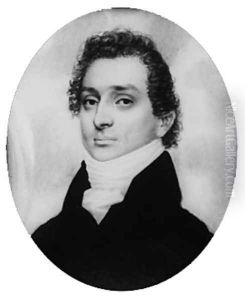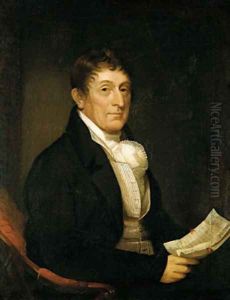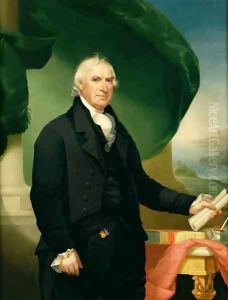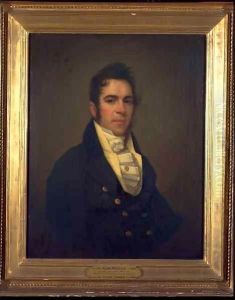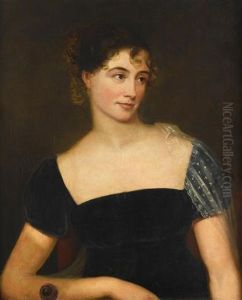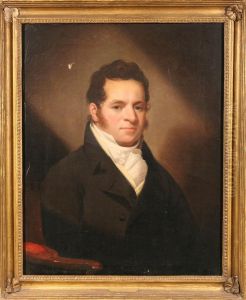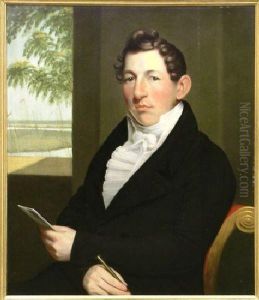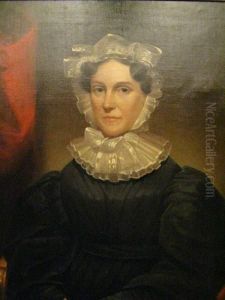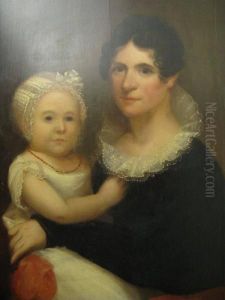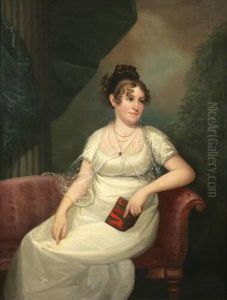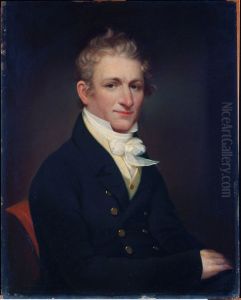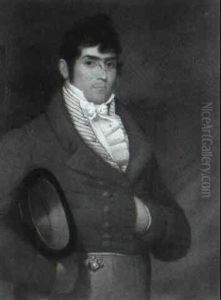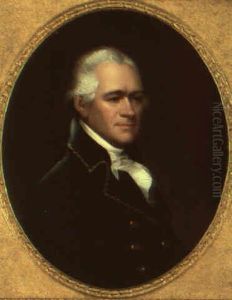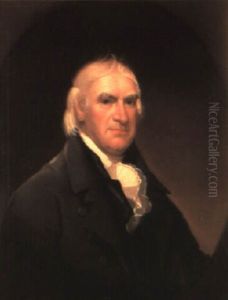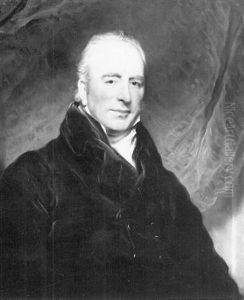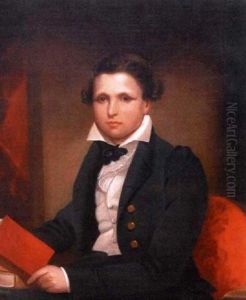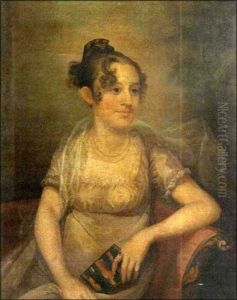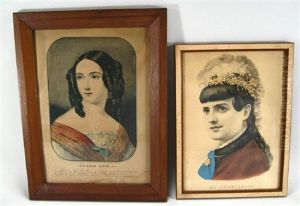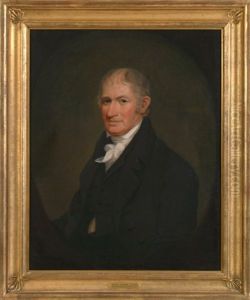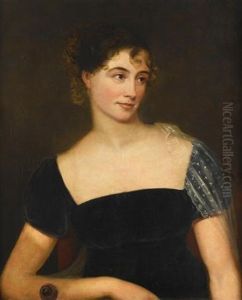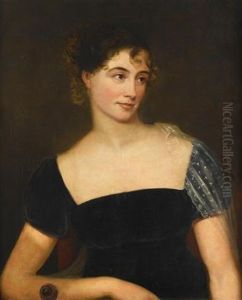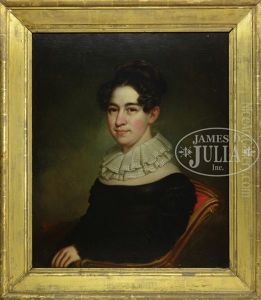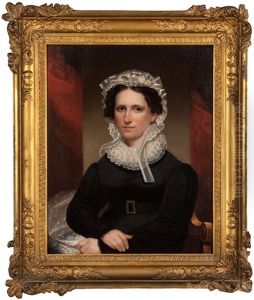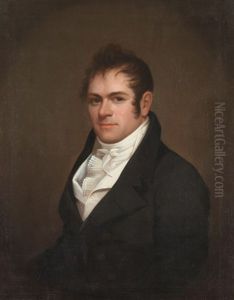Ezra Ames Paintings
Ezra Ames was an American painter, primarily known for his portraits of prominent figures during the early years of the United States. Born on May 5, 1768, in Framingham, Massachusetts, Ames developed an interest in art at an early age. Little is known about his early training, but by the 1790s, he had moved to Albany, New York, which was then a burgeoning center of politics and commerce. In Albany, Ames quickly established himself as a leading portraitist, capturing the likenesses of local and state politicians, businessmen, and their families.
Ames' portraits are characterized by their realistic representation and attention to detail, traits that made him a sought-after artist among the social elite. He was adept at conveying the social status and character of his sitters through his skilled use of color, composition, and clothing details. Some of his most noted works include portraits of Alexander Hamilton, Governor George Clinton, and other political figures of the era. His portrait of Hamilton is especially significant, as it is one of the few pre-duel images of the founding father.
Beyond his work as a portraitist, Ames was active in the cultural development of Albany and the broader artistic community in America. He was a founding member of the Albany Society of the Arts, and he played a significant role in promoting the arts and education in the region. His influence extended to a number of apprentices and younger artists who became prominent in their own right.
Ezra Ames passed away on February 23, 1836, in Albany, New York. Although not as widely recognized today as some of his contemporaries, his work provides a valuable insight into the faces and personalities that shaped early American society. His portraits remain a testament to his skill and are preserved in various museums and collections across the United States, serving as an important record of American cultural and political history during the post-Revolutionary period.
